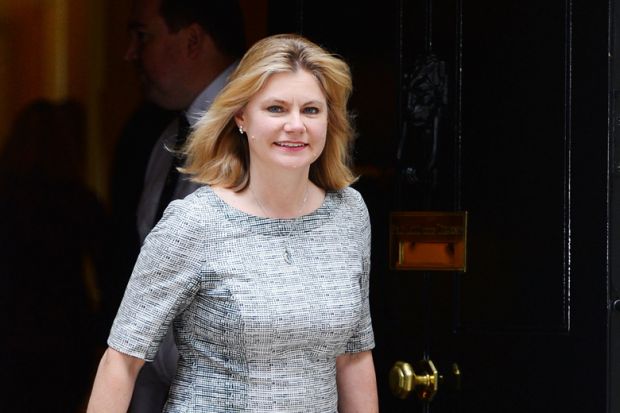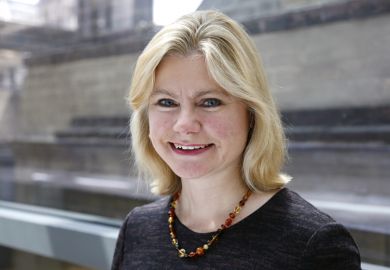The HE and Research Bill
The Higher Education and Research Bill, announced in the Queen’s Speech in May, has its second reading on Tuesday (19 July), so it is something that Ms Greening and her Department for Education team will need to get their heads around quickly.
The bill seeks to create a new Office for Students, with responsibility for promoting a market and with wide-ranging powers over all English institutions, and also to bring together the seven existing research councils, Innovate UK and the research and innovation functions of the Higher Education Council for England into a new body called UK Research and Innovation (UKRI).
The teaching excellence framework
The TEF will see the government monitoring and assessing the quality of teaching in England’s universities, and it is the word on the lips of everyone in UK higher education.
Ms Greening could do worse than starting by taking a look at Times Higher Education’s mock TEF results (and the sector’s reaction to them).
Delivering David Cameron’s access targets
Rules announced by the former prime minister will require all universities to publish data on applications, admissions and retention broken down by socio-economic background, ethnicity and gender.
And with schools and universities now under the same department, Ms Greening may be less likely to tolerate universities blaming schools for their poor records on widening access.
The student mental health crisis
Earlier this year, a worrying four out of five UK higher education institutions reported an increase in students seeking mental health support.
Shelly Asquith, the National Union of Students’ vice-president (welfare), said that student mental health was “in crisis” and that support services were “creaking at the seams”.
The findings were based on the responses of 54 higher education institutions, and followed a study for Hefce that estimated that the number of students declaring that they had a mental health problem had risen by 132 per cent over four years. Hefce warned that government funding cuts could force universities to make “increasingly tough decisions about who and what they can support”.
What about non-British students and staff?
Since the Brexit vote, the academy has been clamouring for answers about the status of European Union students and staff.
Will EU scholars pay a high price to join UK HE? In June, it was reported that falling international student numbers cost the UK £8 billion – how do we fill this gap? Could the EU exit put courses under threat of closure?
You can find all our EU referendum coverage here.
It is not just EU citizens, however. There are big questions about those from further afield, too – particularly international students and their right to remain after graduation. What of the “challenging” new restrictions on employing foreign graduates? And how will Brexit affect Indian students coming to the UK?
The ability for universities to challenge and debate
The new minister needs to look seriously at concerns that universities are becoming too censorious and conformist. Writers such as Joanna Williams have argued that some views about everything from transgender identity to Israel/Palestine have become unsayable on campus, that students want to be protected from uncomfortable and even dangerous ideas rather than rise to the challenge of defending their own values.
The legitimacy of “safe spaces”, “trigger warnings” and “no-platforming” have all been called into question. Should the government play a role in ensuring that universities remain environments committed to free speech and robust debate?
Cracking the glass ceiling
The difficulty faced by female academics in progressing to senior positions is well documented.
And while the gender pay gap may be shrinking, it is still a huge problem. Likewise, universities’ record on employing and promoting black and ethnic minority scholars is poor. Just 17 professors in the UK are black women.
Register to continue
Why register?
- Registration is free and only takes a moment
- Once registered, you can read 3 articles a month
- Sign up for our newsletter
Subscribe
Or subscribe for unlimited access to:
- Unlimited access to news, views, insights & reviews
- Digital editions
- Digital access to THE’s university and college rankings analysis
Already registered or a current subscriber?



